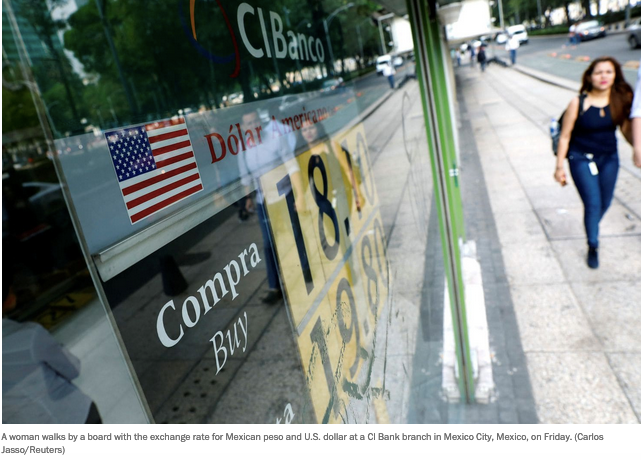We may be on the cusp of an upheaval in global trade. Since World War II, the international trading system has operated on the premise of “most-favored nation (MFN),” meaning that concessions granted to one country must be extended to all countries in the system. The trade standoff between the United States and China suggests that this approach is giving way to the emergence of rival economic blocs that, increasingly, control international trade and investment.
In a fascinating new paper, economists David S. Jacks and Dennis Novy argue that today’s contentious trade disputes recall what happened during the Great Depression of the 1930s. Led by Britain and Germany, competing trading blocs governed large portions of global commerce. Something similar is happening now. Witness President Trump’s threat to impose a 5 percent tariff on Mexican imports as a way of reducing illegal immigration.
“The trade wars of the present day [may lead] . . . to a reorientation of world trade around China- and U.S.-centric trade blocs,” they write. To be sure, MFN was not always followed with religious fervor. Exceptions occurred. Practical politics often collided with economic principle. Still, the United States was the world’s major economic power and the main architect of the postwar trading system, and it supported MFN.




